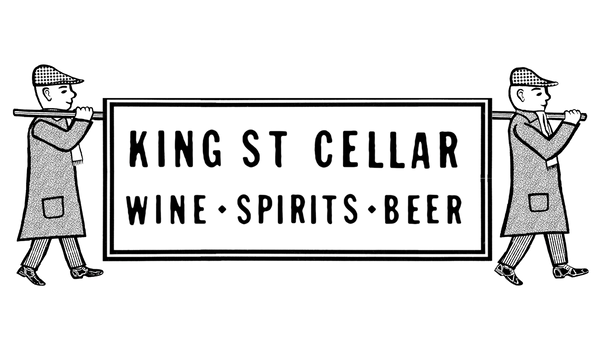What is 'natural wine' anyway?
This is an edited version of a post from ten (!!) years ago, on Anthroenology.org. It has been edited, updated and posted here with the kind permission of Chris Kaplonski, Director of Research at Anthroenology, and blogger at The Greater Senses wine blog.
‘Natural wine’ – a key focus at King Street Cellar - is a type of wine that many, if not most, people in the ‘wine world’ agree exists, but they don’t agree on what it is. Some think it pushes boundaries, others think it invokes traditions now sadly lost to modernity, and yet others think it means pretty much nothing. Or pick any combination of the above.
But what, when all is said and done, is this vague thing called ‘natural wine’? Without entering the debate on what is and isn’t natural wine, let me give a quick introduction.
Natural wine, at its heart, is about minimal intervention. Ideally, nothing should be added in the grape-growing or wine-making processes. This means that in growing the grapes, sustainable, organic or biodynamic methods are most often used, even if the vineyards aren’t certified as such. In the winery, the yeasts found growing on the grapes are used, rather than commercial yeasts. Fining and filtration – means of clarifying the wine – are out. Any other ‘technological’ approaches to wine-making, whether chaptalization (adding sugar) or reverse osmosis (to remove alcohol) are out. (To be fair, many of these interventions will be regulated by various appellation or other laws.) Even SO2 (sulphur dioxide), used as a preservative in wine, is often used sparingly, if at all. Quite what you are ‘allowed’ to do depends on how radical your stance is.
What does this mean for the consumer? Natural wine, being unfiltered and unfined, will often appear cloudy. In more conventionally produced wine, and in most wine-tasting, this would be considered a fault. Some critics argue that the minimal SO2 makes natural wines unstable, and even potentially dangerous. Supporters would reply that the wine, being a living thing, is in its own way more stable than lifeless, conventionally produced wines.
Taste-wise, things are more complicated. Some people find natural wines off-putting. At a tasting I ran once in Austria, most of the natural wines were rejected as ‘faulty,’ ‘not ready’ and ‘not healthy’. (Interestingly, they were more tolerant of the natural red than the white or rosé). Since natural wines often fall outside the range of expected tastes – particularly for whites – they can be described as an acquired taste.
This also means they often won’t or can’t be classified as what they are. This is really a subject for another post, but briefly, wines are expected to conform. Not only must a red Burgundy be made only from Pinot noir (and fulfil other requirements), it must look and taste like a group of people have decided Burgundy should look and taste. Natural wine doesn’t always meet these expectations (known as typicity), and so it isn’t unusual to find it classed as ‘table wine’ or ‘Vin de France’ (or equivalent).
There are a number of reasons to be aware of natural wines, even if you don’t like them. One is simply that they are a growing trend in the wine world. This was true when wrote the original version of this post. It’s even more true now – Natural wine is a Thing, and entire shops are dedicated to it. Natural wines also make you think about what a wine should taste like, and why.
Another is that natural wine makers tend to be very concerned with sustainability and the environment. They aren’t the only ones, of course, but they are often at the forefront of sustainability initiatives.
Further reading:
Goode, J. and S. Harrop. 2011 Authentic wine: toward natural and sustainable wine making. Berkeley, University of California Press. A good, well-balanced introduction.
Legeron, I. 2014. Natural wine: an introduction to organic and biodynamic wines made naturally. London, CICO Books. A glossy introduction by a key proponent of natural wine.
Further further reading:
Here are two more blog posts from Anthroenology, on linked topics:
A post on typicity, mentioned above.
And why Chris, a fan of low-intervention wine, doesn't really like the term 'natural wine'
